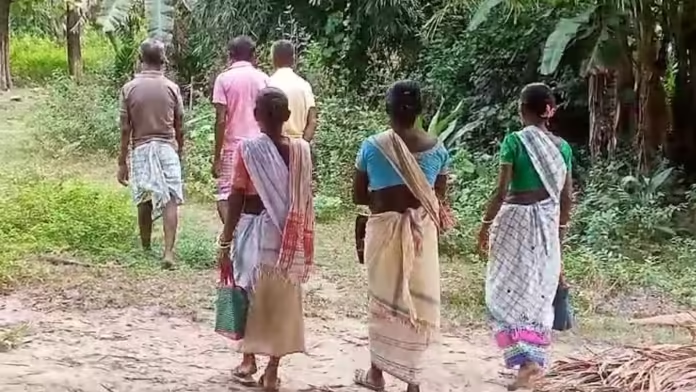In Alinagar village, Gossaingaon, three families have faced ostracism and harassment for the past three years after being branded as witches. The allegations stem from a series of events that escalated tensions within the community, leading to a toxic environment for the accused families. This grim situation reflects a deeper issue of superstition and societal stigma that still pervades certain regions of Assam, highlighting the urgent need for awareness and intervention.
The families, consisting of around fifteen members, have become social pariahs in their own village. Neighbors have shunned them, and community gatherings have turned into hostile spaces for them. Children from these families face bullying in schools, while adults struggle to find work as local businesses refuse to employ them. The weight of the accusations hangs heavily over their heads, and the fear of violence looms large, driving them further into isolation.
For these families, the accusations began innocently enough. A local health crisis or an unexplained death often triggers such allegations in superstitious communities. Once the seed of suspicion is planted, it grows rapidly, fueled by gossip and fear. The families in Alinagar found themselves in a similar predicament. As health issues arose within the village, fingers pointed toward them, leading to their public shaming and rejection.
The ostracism led to dire consequences for the families. They sought help from local authorities, but their pleas fell on deaf ears. With each attempt to regain their dignity, they faced further threats from neighbors who had accepted the accusations as truth. The psychological toll on the families has been immense, with many members suffering from depression and anxiety as they grapple with their newfound reality. They have not only lost their social standing but also their sense of security and belonging.
Despite the oppressive environment, the affected families continue to seek justice. They have gathered evidence of their harassment and reached out to non-governmental organizations for assistance. Some local activists have stepped in to support their cause, raising awareness about the harmful effects of witch hunts. They argue that such incidents highlight the urgent need for legal protections against witchcraft accusations and a societal shift toward rational thinking.
The state government has made efforts in the past to address witchcraft accusations through public awareness campaigns. However, these initiatives often fall short in rural areas where superstition runs deep. Many villagers remain skeptical of the changes, relying instead on long-standing beliefs and practices that perpetuate these harmful cycles. The families in Gossaingaon have become reluctant symbols of this struggle against outdated traditions and societal ignorance.
Local authorities have faced criticism for their inaction. Community leaders and law enforcement officials have not taken the allegations seriously enough, allowing the ostracism to continue unchecked. The lack of a robust legal framework to protect individuals from witchcraft accusations further exacerbates the issue. Many activists argue that the government must implement stronger laws to prevent witch hunts and provide a safe environment for the accused.
The situation in Alinagar village serves as a poignant reminder of the challenges faced by those accused of witchcraft in India. The families caught in this web of fear and stigma need urgent support and protection. Society must recognize that witch hunts are not only an infringement of individual rights but also a manifestation of deep-seated prejudices that require urgent attention.
As discussions around gender equality and human rights gain momentum, the plight of these families must not be overlooked. The state must take decisive action to protect vulnerable individuals from such atrocities and promote awareness that challenges harmful beliefs. Only through education, legal reforms, and community engagement can society begin to dismantle the oppressive structures that allow witch hunts to flourish.
Ultimately, the families in Gossaingaon deserve justice, protection, and the chance to rebuild their lives. Their story highlights the need for a collective response to combat superstition and uphold human dignity. As long as fear and ignorance reign, such tragic stories will continue to unfold across the region, underscoring the urgent need for change.




